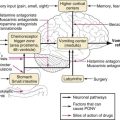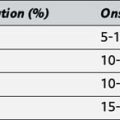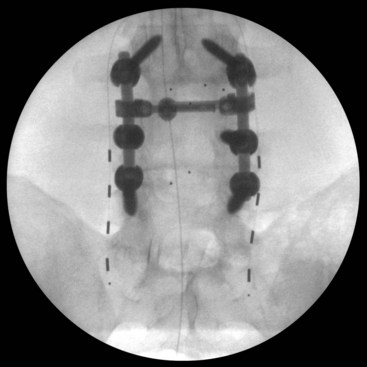Chronic pain is a crippling condition that impacts millions of individuals across the globe. It can result from various conditions such as arthritis, fibromyalgia, or nerve damage, and its effects are not limited to physical distress. In fact, chronic pain often brings with it a host of mental health challenges, with anxiety being one of the most common psychological responses. But what if there was an unexpected solution for alleviating both anxiety and chronic pain simultaneously?
Recent studies and anecdotal evidence are revealing an unbelievable connection between anxiety relief and the reduction of chronic pain symptoms. This surprising link is offering hope to those who suffer from both conditions, demonstrating how managing anxiety could play a significant role in improving pain management. Let’s dive into this breakthrough and explore how anxiety relief strategies might alleviate chronic pain symptoms.
The Complex Relationship Between Anxiety and Chronic Pain
At first glance, it may seem counterintuitive to treat pain by addressing mental health. However, pain and anxiety are deeply interconnected. Anxiety can intensify the perception of pain, and conversely, chronic pain can elevate feelings of anxiety, creating a vicious cycle. This cycle can worsen both conditions over time, making effective treatment more challenging.
Research has shown that anxiety can trigger an increase in muscle tension, which in turn can exacerbate physical pain. In people with chronic conditions like fibromyalgia, where widespread pain is prevalent, this muscle tension can intensify the severity of symptoms. Moreover, anxiety often increases the body’s stress response, raising levels of cortisol and other stress hormones that can contribute to inflammation and pain.
The Role of Anxiety Relief in Managing Chronic Pain
One of the most intriguing findings in recent research is that treating anxiety can help break this cycle, leading to significant pain relief. When anxiety levels are reduced, the body’s stress response is also moderated, leading to a decrease in muscle tension and inflammatory markers. This phenomenon can result in a noticeable reduction in pain levels for those dealing with chronic conditions.
Methods for anxiety relief, such as therapy, lifestyle changes, and medication, are becoming increasingly recognized for their ability to alleviate chronic pain. Cognitive Behavioral Therapy (CBT), for instance, is a common psychological intervention for anxiety that has shown promise in treating chronic pain. By helping patients reframe their thoughts and reactions to pain, CBT can reduce both emotional distress and the physical sensation of pain.
Medications: A Dual Approach to Anxiety and Pain Relief
Several medications are commonly prescribed to address both anxiety and chronic pain. For example, benzodiazepines like Alprazolam are often used to manage anxiety disorders. Alprazolam works by enhancing the effect of a neurotransmitter called gamma-aminobutyric acid (GABA), which has a calming effect on the brain. By reducing anxiety, Alprazolam can indirectly alleviate some of the physical discomfort associated with stress and tension, making it easier for patients to manage chronic pain.
While Alprazolam is primarily prescribed for anxiety, it has shown secondary benefits for people dealing with pain-related issues, particularly when stress and anxiety amplify the pain. However, it’s important to note that medication should always be used under a doctor’s supervision, as benzodiazepines carry the risk of dependency and other side effects.
In addition to anxiety medications, some individuals suffering from chronic pain might seek pain relievers such as Tramadol. Tramadol is an opioid-like medication that can help manage moderate to severe pain. It works by altering the way the brain responds to pain signals, offering a dual benefit for those who suffer from both chronic pain and anxiety.
If you are considering options to manage both pain and anxiety, some people choose to buy Tramadol as part of their treatment plan. However, it’s essential to consult with a healthcare provider before purchasing or using this medication to ensure it’s the right choice for your specific situation.
Lifestyle Changes to Combat Anxiety and Chronic Pain
Beyond medication, there are several lifestyle changes that can help individuals address both anxiety and chronic pain. These include regular exercise, mindfulness practices, adequate sleep, and a balanced diet. Studies have shown that physical activity can help reduce both anxiety and pain by releasing endorphins, the body’s natural painkillers. Exercise also promotes better sleep, which is crucial for managing both chronic pain and anxiety.
Mindfulness techniques such as deep breathing exercises and meditation can help calm the mind and reduce the physiological effects of stress. By incorporating these practices into daily routines, individuals can reduce the emotional impact of pain and enhance their overall well-being.
The Importance of a Comprehensive Treatment Plan
Given the intricate relationship between anxiety and chronic pain, the most effective treatment plans often involve a combination of approaches. This might include psychotherapy, medication, physical therapy, lifestyle changes, and even support groups. A holistic approach can help address the root causes of both anxiety and chronic pain, providing long-term relief and improved quality of life.
Moreover, each person’s experience with pain and anxiety is unique, and treatment must be personalized. It’s important for patients to work closely with healthcare providers to create a plan that meets their individual needs, ensuring that all aspects of their health—physical, mental, and emotional—are addressed.
Conclusion
The link between anxiety relief and chronic pain alleviation is proving to be a groundbreaking discovery for those who suffer from both conditions. By addressing anxiety, patients may experience significant improvements in their pain levels, highlighting the importance of a holistic approach to treatment. Whether through medication like Alprazolam or Tramadol, therapy, lifestyle changes, or mindfulness practices, there are numerous ways to break the cycle of pain and anxiety.





